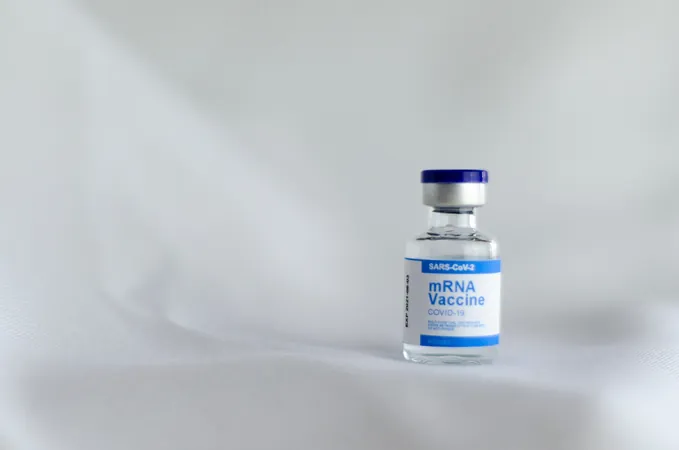
Revolutionary Lipid Nanoparticles Could Transform mRNA Vaccines
2025-05-29
Author: Siti
A groundbreaking development from Cornell University could change the game for mRNA vaccines! Researchers are introducing a novel material that promises to enhance the delivery and efficacy of these vaccines by replacing a common ingredient known to cause unwanted immune reactions in some recipients.
mRNA vaccines have soared in popularity over the past five years, thanks to their remarkable ability to instruct cells to produce proteins that combat viruses, significantly reducing the severity of COVID-19 infections. However, delivering mRNA effectively to cells is a critical challenge.
Traditionally, researchers have used lipid nanoparticles—tiny fatty spheres that encase the mRNA to protect it from degradation. Yet, a widely used component of these nanoparticles, polyethylene glycol (PEG), can trigger immune responses in certain individuals, prompting scientists to seek more compatible alternatives.
A Stealthy Solution
Enter Shaoyi Jiang, a professor of biomedical engineering, who is pioneering a shift away from PEG in favor of a more adaptable and 'stealthy' polymer. His findings, published in the journal Nature Materials, unveil a promising new delivery vehicle that achieves a delicate balance: stable enough to shield mRNA while also allowing for efficient release inside cells, and discreet enough to bypass immune detection.
"Our bodies are primarily water, so introducing something like PEG, which has exposed hydrophobic properties, can trigger our immune system to view it as foreign and generate antibodies to eliminate it," Jiang explains. This response can increase the likelihood of adverse effects from vaccinations, complicating their effectiveness.
Why PEG is a Problem
Interestingly, most people’s immune systems are already predisposed to target PEG. Studies reveal that many individuals harbor anti-PEG antibodies due to their exposure to this substance in everyday products like shampoos and toothpaste, making the immune system quick to react.
Introducing Zwitterionic Polymers
To tackle this issue, Jiang has engineered lipid nanoparticles that incorporate a zwitterionic polymer—poly(carboxybetaine) (PCB)—as a superior replacement for PEG. This new material exhibits a remarkable affinity for water, enabling it to seamlessly integrate into the body while effectively delivering mRNA.
Jiang's research indicates that using PCB instead of PEG results in highly efficient mRNA vaccines that do not trigger undesirable immune reactions, making them safer and more effective.
Collaborative Efforts for Clinical Applications
Jiang is collaborating with prominent institutions, including Weill Cornell Medicine, the Houston Methodist Cancer Center, and the National Cancer Institute, to advance this discovery toward clinical applications, focusing on developing mRNA-based cancer vaccines.
The zwitterionic nanoparticles help navigate past the body's immune defenses, stimulating targeted immune responses while minimizing unwanted activation.
A New Hope for Cancer Vaccines
"For diseases like cancer, where the tumor environment can suppress immune responses, higher vaccine doses are often necessary for effectiveness," Jiang notes. "If there's a slight issue with the PEG component, this challenge could escalate with increased dosages."




 Brasil (PT)
Brasil (PT)
 Canada (EN)
Canada (EN)
 Chile (ES)
Chile (ES)
 Česko (CS)
Česko (CS)
 대한민국 (KO)
대한민국 (KO)
 España (ES)
España (ES)
 France (FR)
France (FR)
 Hong Kong (EN)
Hong Kong (EN)
 Italia (IT)
Italia (IT)
 日本 (JA)
日本 (JA)
 Magyarország (HU)
Magyarország (HU)
 Norge (NO)
Norge (NO)
 Polska (PL)
Polska (PL)
 Schweiz (DE)
Schweiz (DE)
 Singapore (EN)
Singapore (EN)
 Sverige (SV)
Sverige (SV)
 Suomi (FI)
Suomi (FI)
 Türkiye (TR)
Türkiye (TR)
 الإمارات العربية المتحدة (AR)
الإمارات العربية المتحدة (AR)